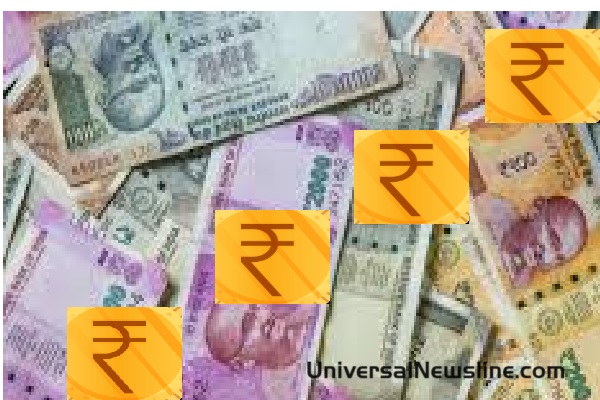The event focused on creating a more inclusive education ecosystem at all levels, from primary schools to higher education. Discussions acknowledged the progress made in mitigating gender bias in the education institutions, but also discussed the current practices that still exist leading to persistence of gender stereotypes in the thinking of both boys and girls. The experts recommended key actions that can be taken by the educational institutions, the government, school leaders and the industry, both independently and in collaboration with each other to drive this change.
Opening the event, Ipsita Kathuria, Founder and CEO of TalentNomics India, set the tone with her inspiring remarks, highlighting the urgency for this change and calling for a collective effort to transform the educational landscape. Paul Linnarz, Head of KAS Country Office in Japan, also welcomed the participants and further highlighting the importance of global collaboration in addressing gender disparity in education. Their leadership and vision framed the dynamic series of sessions throughout the day.
Ratna Viswanathan, CEO of Reach to Teach India in her keynote speech, iterated the importance of education for South Asia to leverage its demographic dividend. She stressed on the vital role education plays in addressing the inequities in homes, at workplaces and societies. She emphasised the fact we should just not focus on universal education and equity in enrolment but also on enhancing learning outcomes and quality of education. Another critical area that needs to be addressed is the “hidden gender inequities” in the educational content via textbooks and curriculum. She mentioned that “education is a supply chain” and we need to address all components of the system by simultaneously addressing various barriers.
The first panel discussion was on Promoting Equity in Primary Education, moderated by Sandeep Hooda, Co-Founder of Vega Schools, presented powerful insights. Dr. Rukmini Banerji, CEO of Pratham Education Foundation, presented findings from the ASER annual survey, suggesting that while learning outcomes between boys and girls are fairly balanced at school levels, access to learning resources, technology and attendance remains a crucial metric of gender inequity. Rita Singh, CEO of ARISE, Bihar Chapter, gave examples of many schemes introduced to encourage girls to access and advance in school education. She also shared firsthand stories of the challenges faced by school principals and stressed the importance of continuous training to overcome these barriers. Dr. Mahesh Prasad, Principal of Step by Step School in Noida, spoke about embedding equity through sports and curriculum reform, along with leveraging the potential of AI in addressing educational gaps.
Another major highlight of the day was keynote by Dr. Avantika Tomar, Partner at EY-Parthenon and Guest Faculty at IIM Calcutta. She shared personal anecdotes to highlight gender inequities in sports, engineering colleges, and consulting firms. She presented compelling data on literacy rates and female labor force participation, noting that while India surpasses global averages in gender equity in enrolment, a significant gender gap persists in the workforce, suggesting that young girls are set up for success but face systemic barriers as they progress. Using data, Dr. Tomar illustrated the “leaky pipeline” from education to workforce: while female net enrolments in secondary education stands at 61%, only 25% of STEM students in higher education are women, and just 10-14% reach C-suite positions in STEM fields. She emphasized the urgent need for an enabling ecosystem—one that includes supportive family structures, societal encouragement, and gender-sensitive policies in schools and colleges—to sustain and uplift women’s journeys from education into impactful careers.
The second panel discussion of the day - Promoting Equity in Higher Education & STEM, moderated by Dr. Rajat Kathuria, Professor of Economics and Dean, School of Humanities & Social Sciences at Shiv Nadar University. This session brought forward a comprehensive discussion on increasing women’s participation in higher education and STEM fields. Among the distinguished panellists were Dr. Rubana Huq, Vice-Chancellor of the Asian University for Women, Bangladesh, who shared the impactful work being done by her institution to support underserved women, including those from Afghanistan, the Rohingya refugee community, and marginalized workers in the garment industry, to help them participate in the workforce in a meaningful way and drive social change. Amanat Boparai, Senior Policy Enforcement Manager at Google, spoke about initiatives such as “Girls Who Code” and scholarships for women in STEM that are breaking down barriers in the field. Yet barriers persist for women to join STEM fields especially in the traditional engineering and futurist technology areas. Srikant Sastri, Chairman of the GDPDC, progress made in women’s participation in education and emphasized the need for measurable frameworks to increase female participation in selected STEM fields.
As the day's focus shifted to bridging the transition from education to the workforce, the third panel discussion commenced. Moderated by Lata Singh, Partner at IBM Consulting, the discussion explored how stereotypes continue to hinder women’s career progression and how these barriers can be overcome through mentorship, continuous learning, and resilience.
The panelists included Vasanthi Srinivasan, Professor at IIM Bangalore, Anuradha Das Mathur, Founder and Dean of Vedica Scholars, and Dr. Anushila Chatterjee, Chief Impact Officer at Vigyanshaala International. Vasanthi Srinivasan highlighted that while families are beginning to value educational and job identities, women's career identities still need broader recognition. She spoke about IIM Bangalore's initiatives, such as integrating gender into course curricula and establishing an Office for Diversity and Inclusion to foster a more inclusive environment. Anuradha Das Mathur emphasized the importance of shifting women’s own attitude towards having a career as being non optional as well as their ability to navigate the challenges of world of work. Dr. Anushila Chatterjee, underscored the importance of learning technology in supporting women’s career choices and skill development. She emphasized the need for women not only to participate in the workforce but also to access leadership roles in high-growth, particularly, emerging fields.









